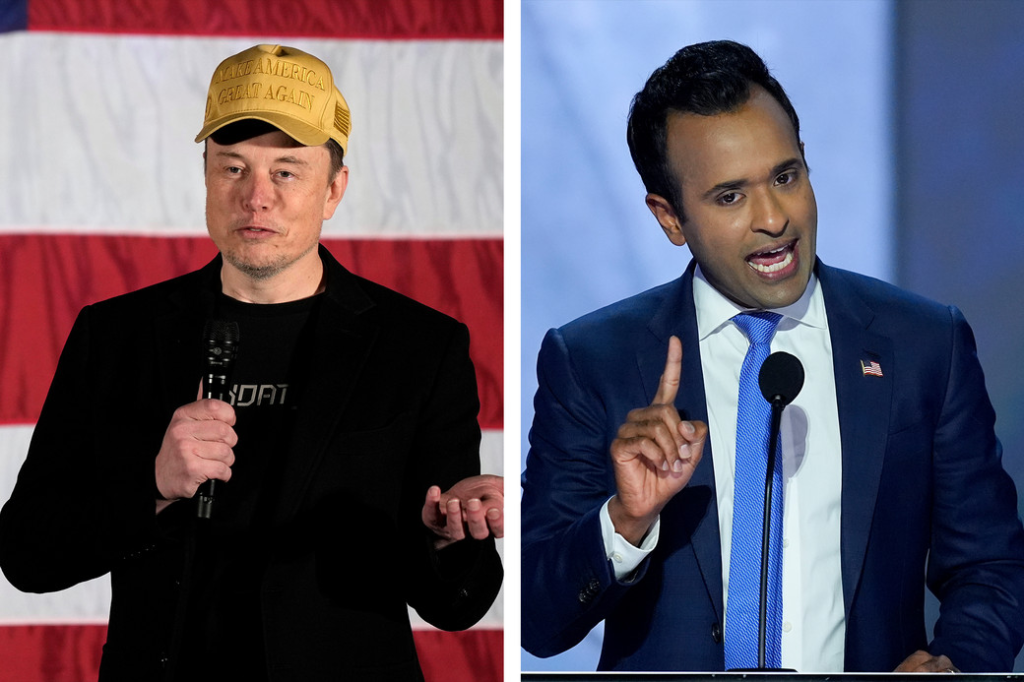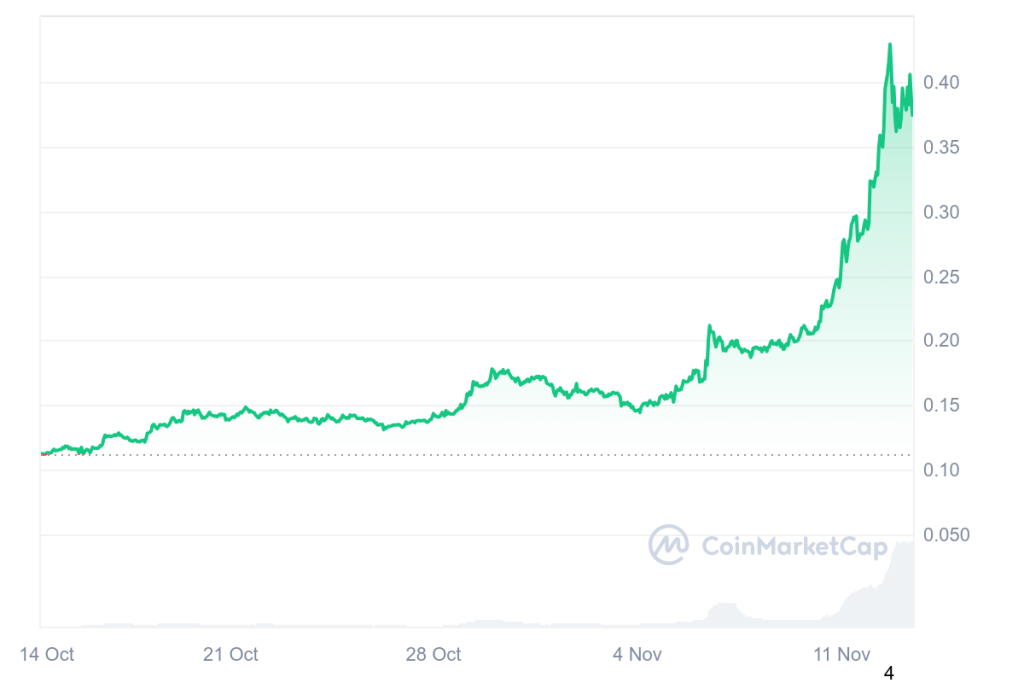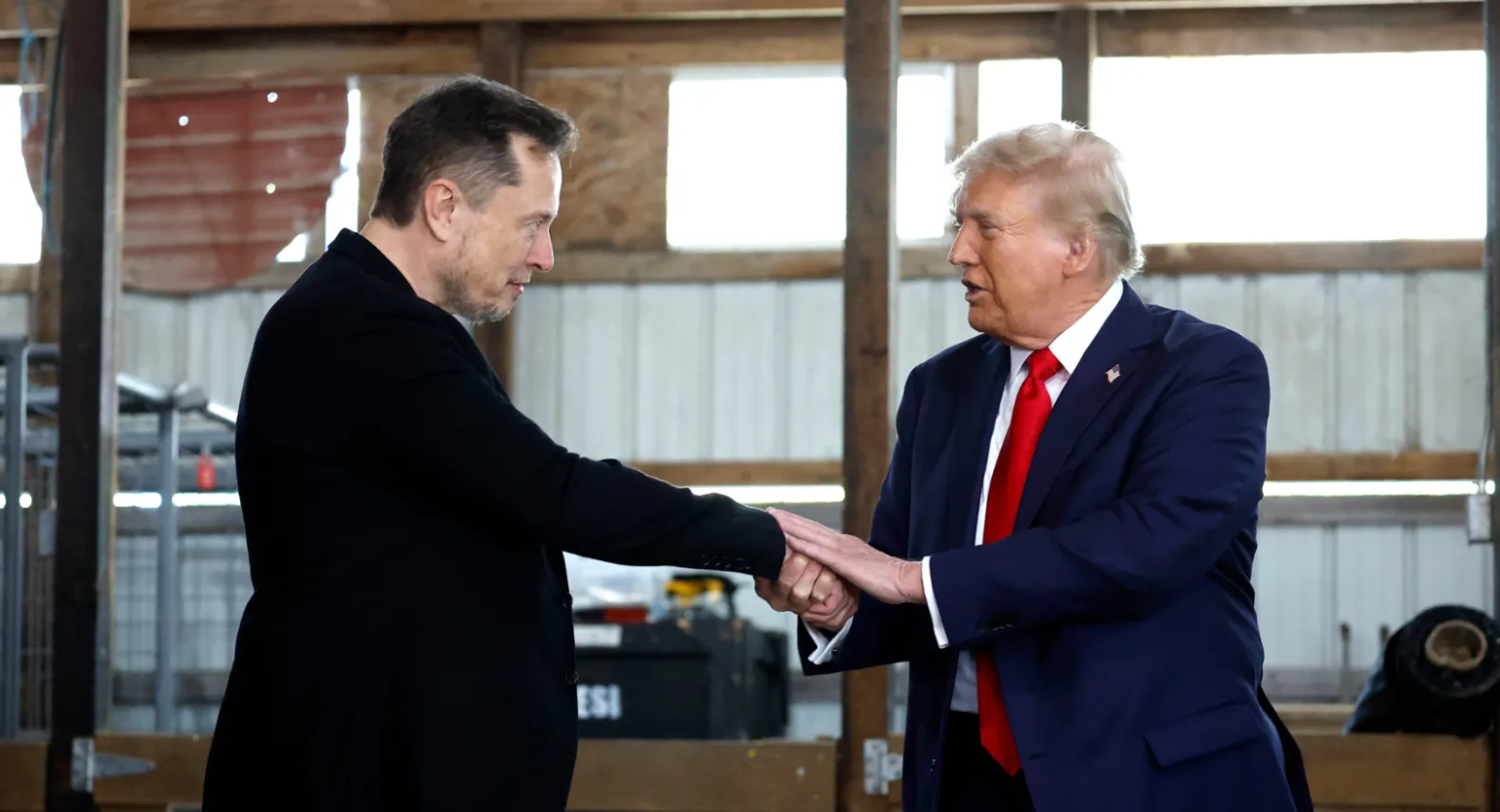What is the Department of Government Efficiency?
The Department of Government Efficiency, or DOGE, was one of the key economic initiatives proposed by Trump during his campaign. It reflects his commitment to significantly reduce government waste, dismantle unnecessary regulatory structures, and encourage a more streamlined approach to federal operations. While similar efficiency initiatives have been attempted in the past, DOGE stands out due to its strong leadership under Musk, the CEO of Tesla and SpaceX, and Ramaswamy, a former Republican presidential candidate and a well-known advocate for limited government.

This department, Trump has stated, will “provide advice and guidance from outside of Government” to “liberate our economy” and make the U.S. government more responsive to “We the People.” The work of DOGE will conclude by July 4, 2026, in time for America’s 250th anniversary, marking what Trump calls “a perfect gift” of streamlined government for the nation.
Elon Musk DOGE: Bringing Private Sector Efficiency to Government
Elon Musk’s appointment to lead DOGE is a major element of Trump’s vision. Musk, known for his ambitious ventures and often unorthodox strategies, is expected to bring private-sector efficiency to federal operations. His experience with Tesla, SpaceX, and other tech enterprises that have benefited from government contracts gives Musk insight into how federal bureaucracy can hinder or help innovation. During the announcement, Musk expressed his enthusiasm, saying that the changes proposed by DOGE would “send shockwaves through the system” and potentially eliminate redundant processes that drain federal resources.
However, Musk’s appointment has also raised questions about potential conflicts of interest. With millions invested in government projects and contracts through SpaceX and other ventures, Musk’s involvement in restructuring government agencies may intersect with his business interests. Yet, Trump and Musk seem confident that Musk’s commitment to government efficiency will override any potential conflicts, with Musk even suggesting the department would use new assessment systems to identify and potentially lay off inefficient employees, offering severance packages to ease transitions.
Vivek Ramaswamy’s Vision for DOGE: Shutting Down Federal Waste
Vivek Ramaswamy, known for his fierce stance on limiting government reach, will co-lead DOGE alongside Musk. Ramaswamy, who had previously run as a Republican candidate, has been a vocal advocate for cutting wasteful spending and reducing the size of federal agencies. During his campaign, he proposed eliminating several federal agencies, including the Department of Education and the FBI. His involvement in DOGE aligns with Trump’s desire to create a smaller government, which Ramaswamy reinforced in a recent post on X (formerly Twitter) by using his popular slogan, “SHUT IT DOWN.”
For Ramaswamy, DOGE represents a chance to put his ideals into action on a national scale. He has stated that the department’s primary goals will be to slash unnecessary expenditures and improve accountability within federal agencies, helping the government function more like a lean startup than a sprawling bureaucracy. The department will also partner with the White House and Office of Management and Budget (OMB) to initiate structural reforms that will leave a lasting impact on federal efficiency.
The Doge Government Effect: Dogecoin Surges Amid DOGE Announcements
Interestingly, the acronym DOGE has resonated well beyond the political and administrative sphere. In an amusing twist, the announcement of DOGE has significantly impacted the cryptocurrency Dogecoin, a “memecoin” originally created as a joke. With Elon Musk, often referred to as the “Dogefather” for his social media influence over Dogecoin, at the helm of DOGE, the cryptocurrency has surged. Following Trump’s announcement, Dogecoin’s value spiked nearly 20%, continuing a postelection rally that has seen the coin climb by over 150% since election day.

The “Doge government” effect has caught the attention of both crypto enthusiasts and political analysts, with many seeing it as a sign of heightened retail interest in speculative assets. Musk’s past endorsements of Dogecoin and his frequent social media posts have influenced its price, and his leadership of DOGE has only intensified investor interest. Some see the meme-inspired department name as a nod to Musk’s humorous and unconventional style, underscoring his unique role in both the business and political arenas.
Future of DOGE Government Efficiency
While the exact structure and scope of DOGE are yet to be fully detailed, it’s clear that Musk and Ramaswamy will have significant authority to recommend—and potentially enact—sweeping changes across the federal landscape. This initiative, if successful, could be a game-changer for how the DOGE government operates. By embracing private-sector principles of efficiency and accountability, DOGE could set new standards for government operations, aligning with Trump’s goals for a leaner, more effective federal system.
In a statement, Trump expressed his confidence in the department’s potential, calling DOGE goverment“the Manhattan Project of our time” and envisioning it as a pivotal force for change. Whether DOGE will achieve the ambitious goals set by its founders remains to be seen, but its launch has already sparked significant political and economic interest. With Musk and Ramaswamy at the helm, DOGE stands poised to influence not just government practices, but potentially the entire federal workforce and the broader Washington, D.C., economy.
As this initiative unfolds, it will be one to watch closely—not only for the promised efficiencies but also for its impact on the future of public-private partnerships and government modernization in the U.S.


